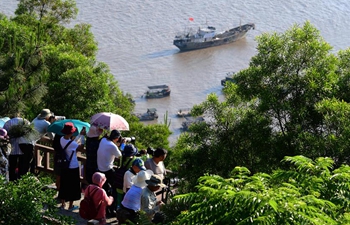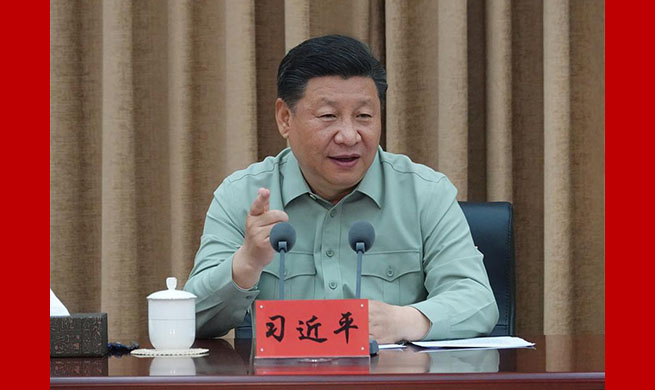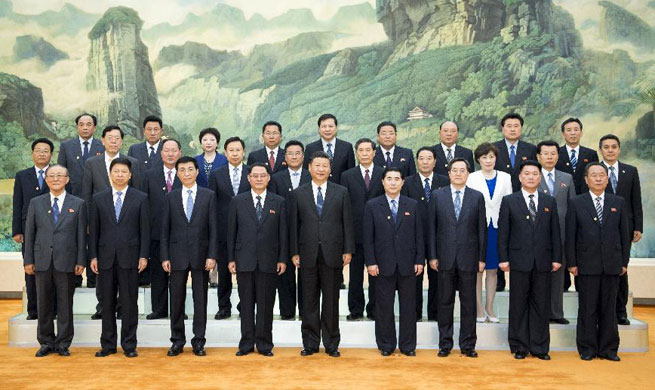GENEVA, May 17 (Xinhua) -- An independent United Nations (UN) expert on Thursday warned that an unintended consequence of unilateral sanctions on the Syrian Arab Republic is that the Syrian people are being denied urgent humanitarian needs.
Idriss Jazairy, the UN Special Rapporteur on the negative impact of unilateral coercive measures on the enjoyment of human rights, said he was deeply concerned about the way sanctions were being implemented.
He said the sanctions are "not allowing humanitarian actors to access the humanitarian exemptions that are an option under the unilateral coercive measures being applied to Syria."
The UN expert, who visited Syria from May 13 to 17 at the invitation of the Syrian government, emphasized that restrictive measures were only making the situation worse.
"I do not wish to diminish the role of the conflict in creating this terrible situation," Jazairy said, "but I emphasize that the Syrian people should not have to suffer for what has become an international conflict of unbelievable complexity. All those seeking to meet basic human rights require our help, not our red tape."
According to him, Syria's gross domestic product (GDP) has fallen by two thirds, half of working age Syrians are unemployed and the value of the currency is one-tenth of what it was in 2010.
Furthermore, the cost of food has increased eight-fold since the start of the crisis, leaving around one-third of Syrians food insecure.
"Most seriously, the lack of clarity around humanitarian exemptions have led risk-averse banks, insurance and shipping companies, and sellers of humanitarian goods from engaging with anyone related to Syria," he noted.
"The 'chilling effect' resulting from over-compliance with sanctions is forcing humanitarian and economic actors to find irregular payment mechanisms which increase costs, add delays, decrease transparency and in some cases make it impossible for businesses to continue," he added.
The Special Rapporteur will present a comprehensive report of his findings and recommendations to the UN Human Rights Council in September 2018.

















